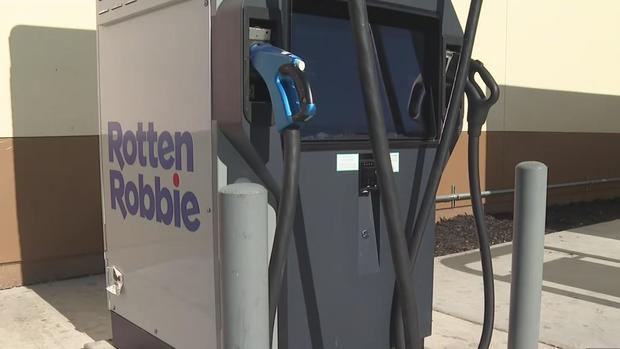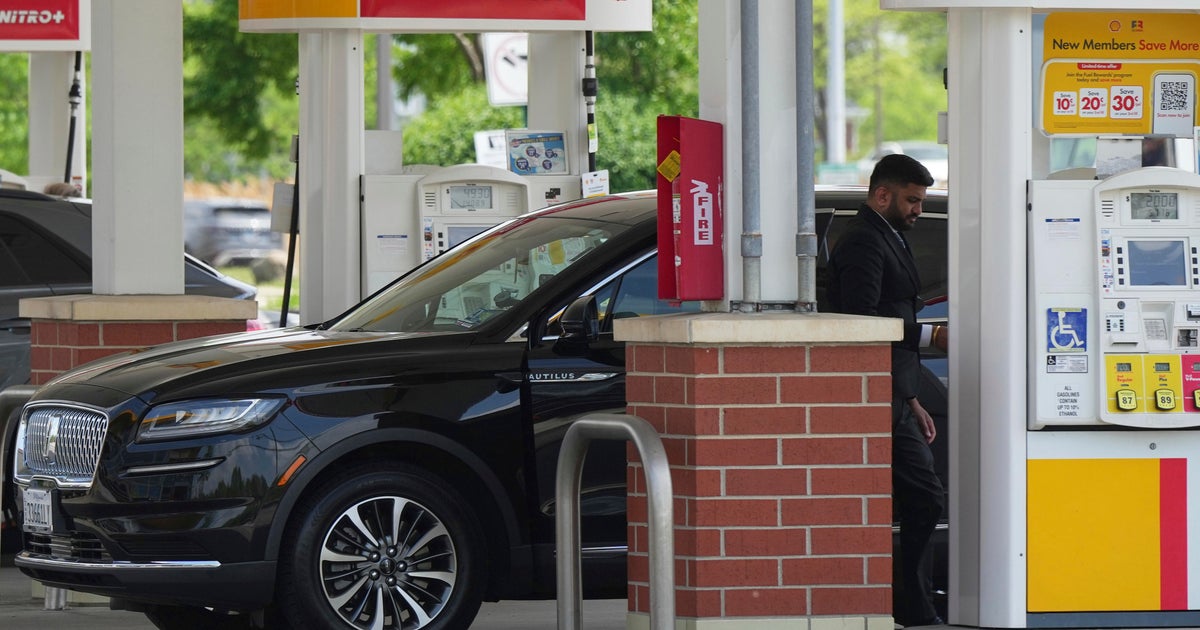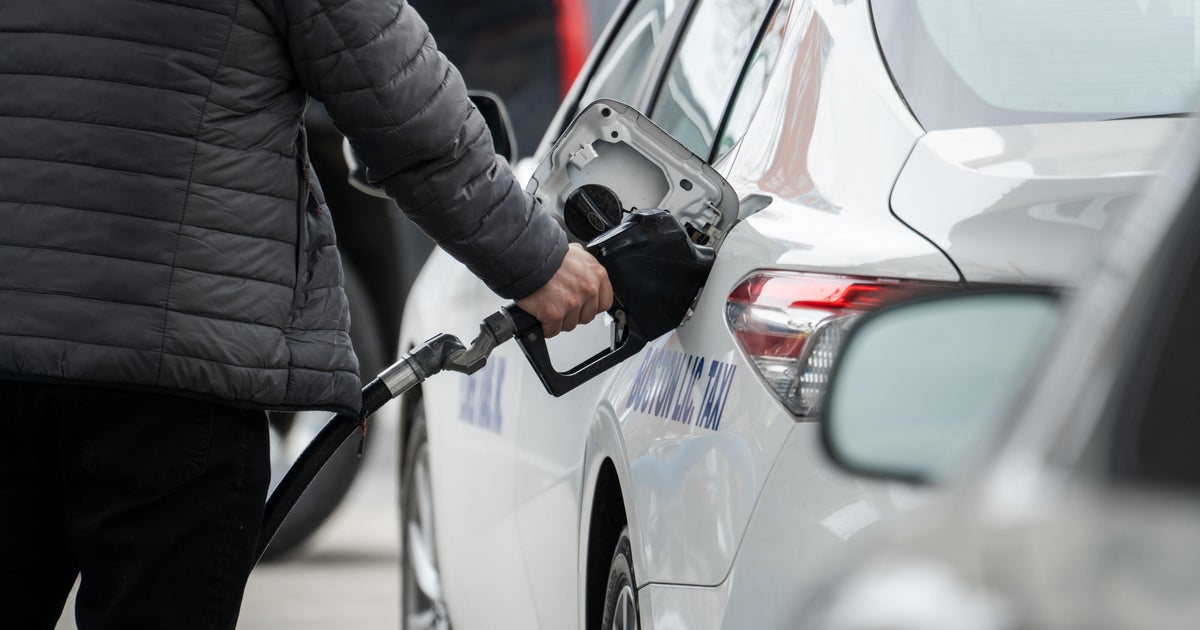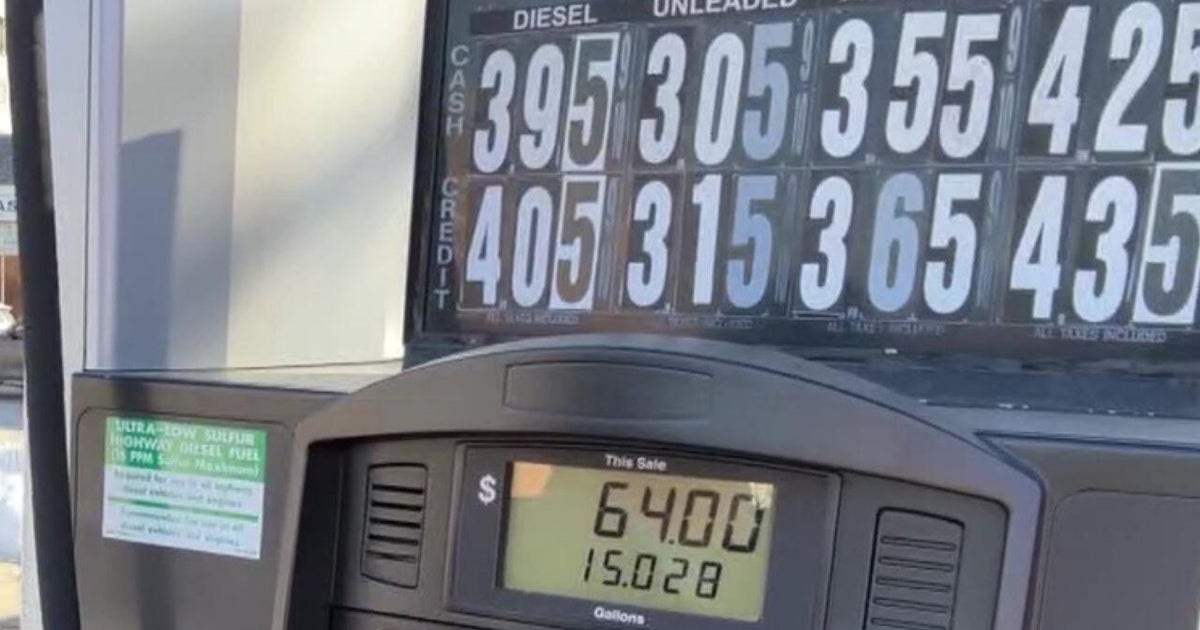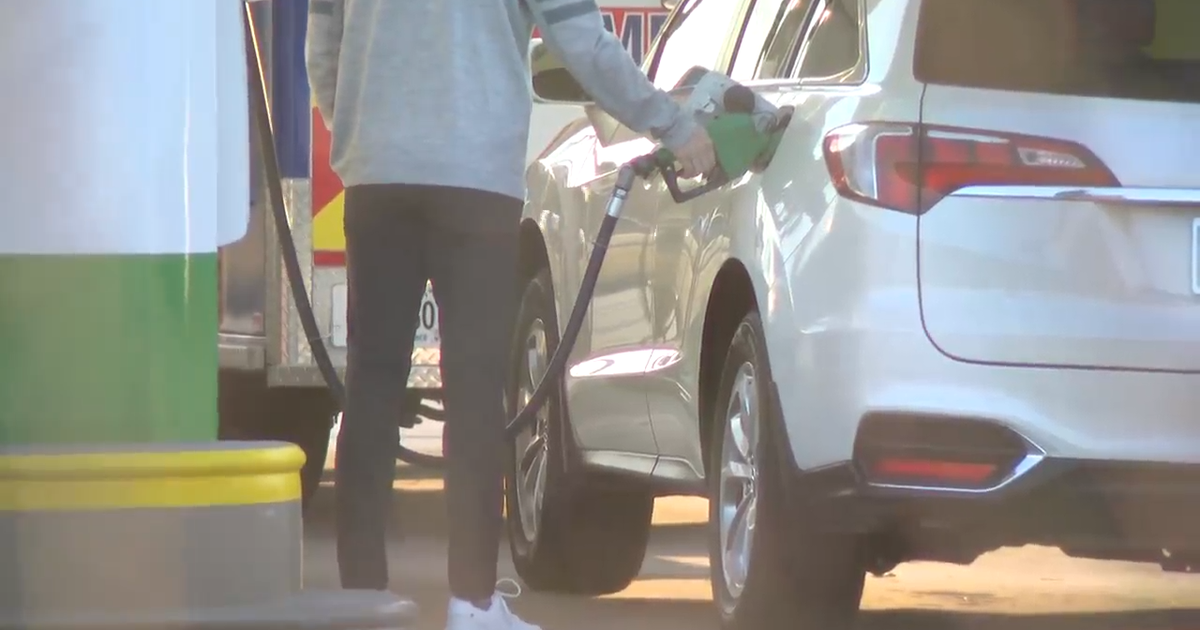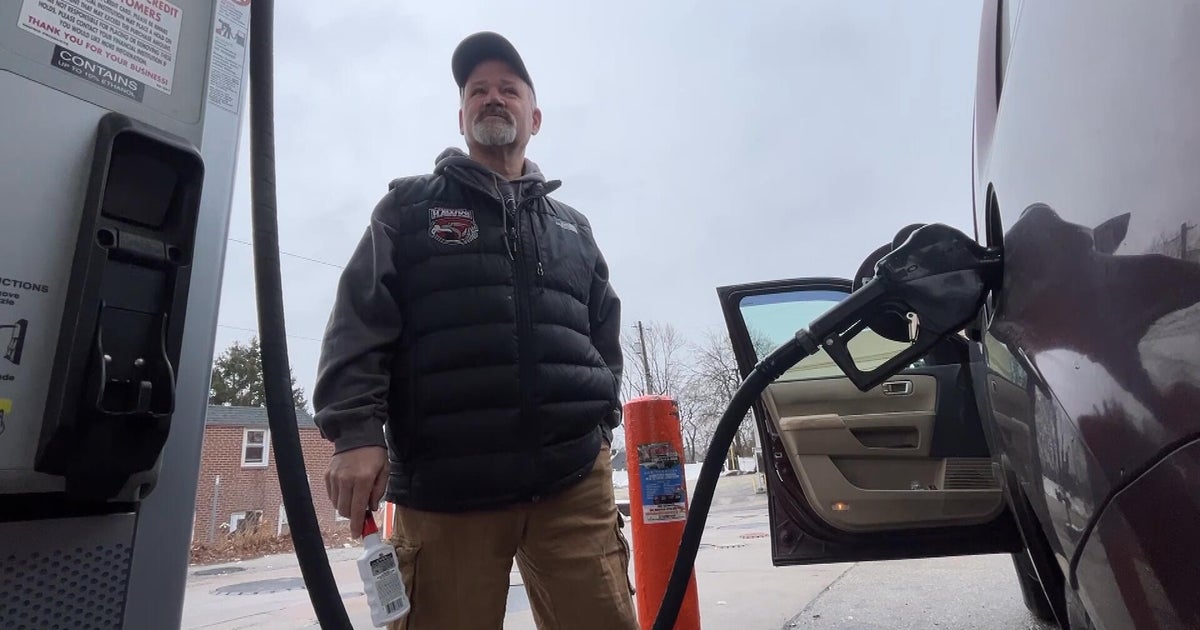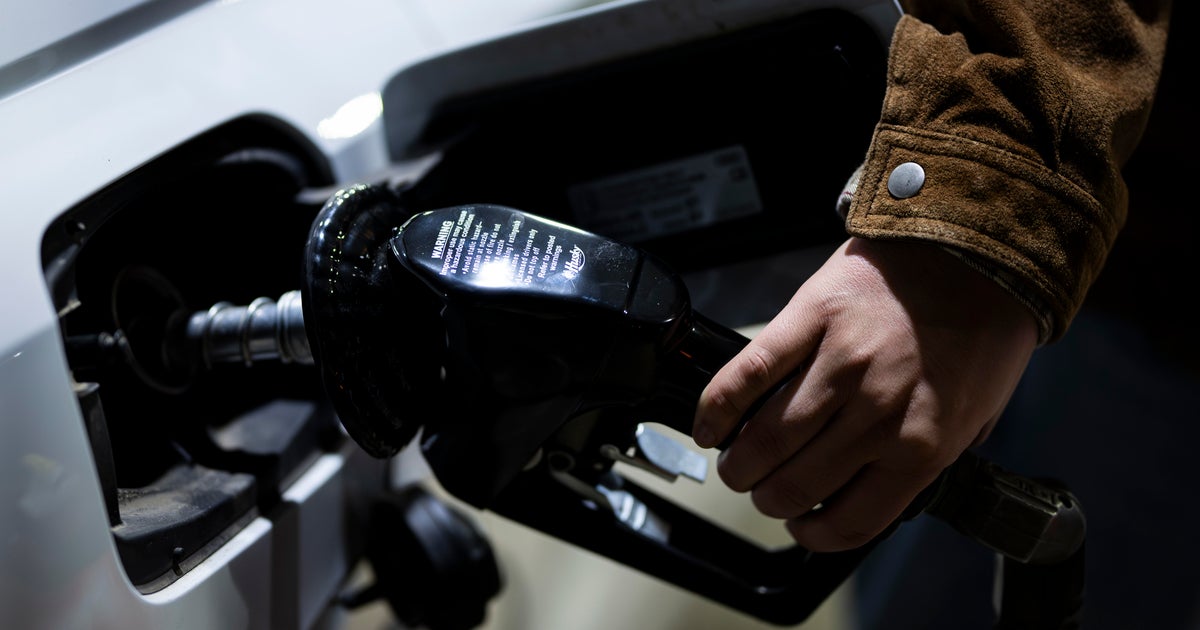San Jose gas station tries offering charging for electric vehicles
SAN JOSE (CBS SF) -- At a Rotten Robbie gas station in San Jose, management is running an experiment: they've installed two EV charging stations on site, so they can be a spot where people fuel up and charge up.
But the results haven't been all that promising, said Robinson Oil and Rotten Robbie Gas Stations CEO Erin Graziosi.
"We average about one-and-a-half EV customers per day between the four charging points," she said. "We make little to no money. I mean, it cost more to put in than we make on any revenue coming out of it."
Despite the minimal use and lack of profitability, Graziosi is making the decision to charge forward and install more EV chargers at other Rotten Robbie gas stations. Some of the money comes from the CALeVIP program.
"We do have a site on Saratoga and Williams that we're going to be installing one in, hopefully if we get the permit," she said. "We also are building a site in Brentwood that we will put two in. So, any of the new builds will have them – the cities want them."
Graziosi, who has been in the oil business for about 20 years, is trying to figure out how gas stations might fit into the puzzle of an EV future, which is where California is headed. The state plans to ban the sale of new gas-powered vehicles by 2035.
"The fact that we're in kind of EV's backyard. The Bay Area is so strong in it. It's like, we're going this way no matter what," she said. "Why not see if it's worth it for us? If it's not, we'll stop doing it."
A lot can and will change over the course of the next 13 years. But at this point, she doesn't think gas stations will necessarily convert into EV charging stations.
"I mean, I don't see the fuel fleet turning over immediately at 2035. I mean, it'll take 10-15 years to really see a significant impact there," she said. "I don't see the future of EV charging being at a charging station necessarily. I think people are going to want to charge where they can go run an errand, where they can go get a cup of coffee and sit down, or go to a restaurant."
Molly Matheson currently owns an EV, and says if she's not charging at home, she'd prefer to charge in an area where she can be productive, as it takes much longer to charge up than to fill up.
"It's the speed, a lot of it has to do with the speed," she said. "You can run errands – they're in pretty good locations at malls."
She says the speed of the charge helps dictate where people charge, and some chargers do not charge very quickly.
"The other chargers, the EV chargers need to be more kilowatts because they charge faster," she said. "This one right here is a 250 kW and it charges very fast."
Graziosi says it takes about 5-6 minutes for a person to gas up, and about 30 to charge up.
"As a business owner, we'll figure it out," she said.
She says it'll take time to figure out the best way forward, but believes electric vehicles are just one part of the puzzle in adapting to climate change.
"My concern is it's going to diminish the focus on innovation in other places," Graziosi said. "There are really clean fuels being created. Renewable diesel is super clean. We have the infrastructure. My concern is we're just switching to something else and putting all our eggs in one basket."
